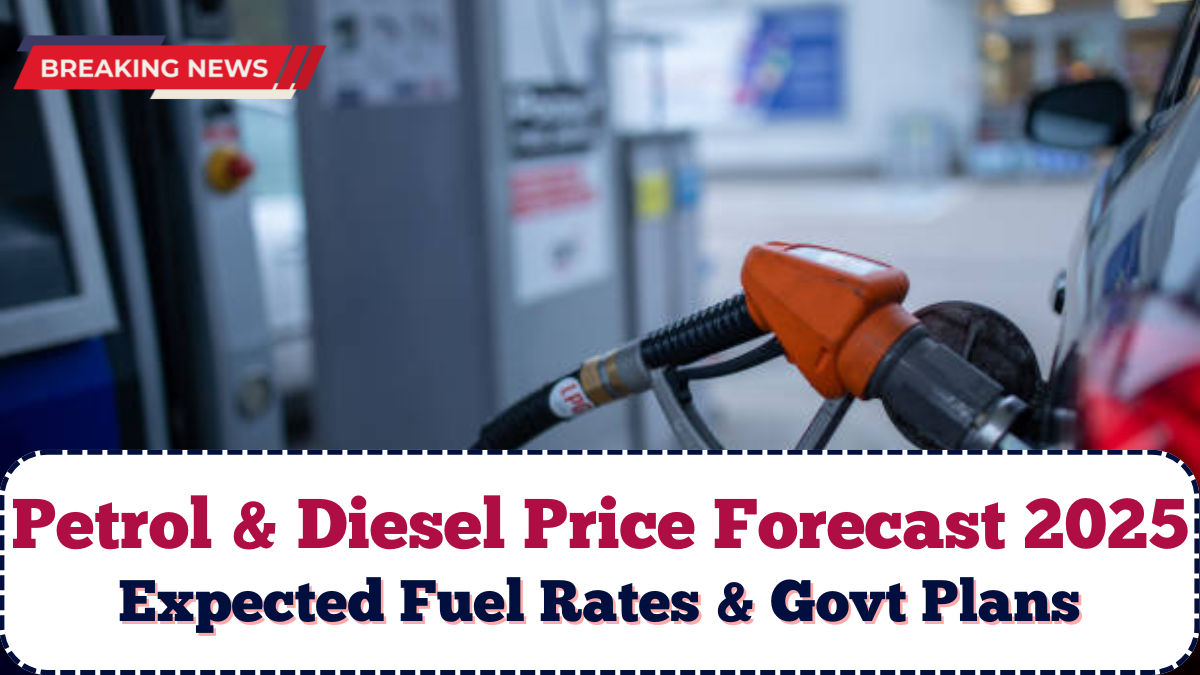The Petrol & Diesel Price Forecast India 2025 reflects a stable fuel pricing environment across the country, with marginal variations influenced by global crude rates, taxation policies, and currency exchange trends. As of June 2025, petrol and diesel prices remain steady in major cities, thanks to strategic government planning, consistent tax regulation, and rising use of alternative fuels like CNG and EVs.
While fuel prices have always been a topic of national concern, this year’s pricing shows improved control and predictability. The Indian government has adopted a region-based pricing model that adjusts rates based on local transport, state VAT, and oil marketing company margins. Consumers, especially in tier-1 and tier-2 cities, are now experiencing price consistency unlike the volatility of previous years.

Current Petrol and Diesel Prices Across Major Cities
Here’s a snapshot of current fuel prices India (as of June 2025) across key metros and states. These prices reflect the dynamic pricing model regulated daily by Indian Oil, Bharat Petroleum, and Hindustan Petroleum.
| City | Petrol Price (₹/L) | Diesel Price (₹/L) |
|---|---|---|
| Delhi | ₹96.45 | ₹89.25 |
| Mumbai | ₹104.12 | ₹92.36 |
| Chennai | ₹100.88 | ₹92.05 |
| Kolkata | ₹99.32 | ₹91.14 |
| Bengaluru | ₹102.76 | ₹92.98 |
| Hyderabad | ₹103.45 | ₹94.00 |
Despite fluctuations in global oil markets, prices have remained relatively stable throughout 2025, thanks to controlled taxation and effective inventory strategies by OMCs.
Factors Affecting Fuel Pricing in 2025
The petrol diesel forecast 2025 is influenced by several domestic and international factors. While India continues to import over 80% of its crude oil, internal policies and buffer stock management are now playing a bigger role in pricing stability.
Key influencing factors:
-
Global Brent crude price (averaging $78–82/barrel in 2025)
-
INR-USD exchange rate, currently averaging ₹83.50/USD
-
Central excise and state VAT adjustments
-
Refining and freight costs incurred by oil marketing companies
-
Transition to cleaner fuels, reducing overall diesel demand
The government’s decision not to increase excise duty this year has helped maintain public confidence in fuel affordability.
Government Measures to Control Prices in 2025
The Indian government has taken several steps to ensure fuel prices remain affordable, especially for lower- and middle-income households. From subsidy reallocations to strategic crude oil purchases, the current fuel prices India are a result of calculated planning.
Recent government steps:
-
No increase in central excise duty on petrol and diesel in Union Budget 2025
-
State VAT rationalisation to reduce disparity between urban and rural rates
-
Strategic oil reserve release to cushion price shocks
-
Expansion of ethanol blending program to 15% (E15 target met)
-
Encouraging shift to CNG, electric, and biofuel vehicles through subsidies
These measures are keeping the pricing in check while reducing long-term dependency on imported crude.
Impact of Stable Fuel Prices on Consumers and Economy
The steady petrol & diesel price forecast India 2025 has had a positive impact on transportation costs, inflation, and overall consumer spending. Logistics companies, public transport, and MSMEs are seeing improved profit margins due to controlled diesel rates.
Benefits include:
-
Lower food transport costs, benefiting both producers and end consumers
-
Stable inflation index, helping RBI maintain policy rates
-
Boost in automobile demand, especially in petrol segment
-
Reduced pressure on household budgets, especially in urban areas
-
Easier business cost planning for logistics, manufacturing, and services
This year, the fuel price strategy has played a key role in supporting economic stability across sectors.
FAQs
What are the current petrol and diesel prices in India (2025)?
As of June 2025, petrol prices range from ₹96 to ₹104 per litre and diesel ranges from ₹89 to ₹94 per litre depending on the city.
Will petrol and diesel prices rise in 2025?
There is no expected sharp increase in 2025. Government controls and low crude volatility have ensured stable prices so far this year.
Are taxes on fuel the same across all states?
No, fuel prices vary due to different VAT rates imposed by individual states in addition to central excise.
What steps has the government taken to manage fuel prices?
The government has kept excise duties unchanged, promoted ethanol blending, released strategic reserves, and encouraged use of alternative fuels.
How do stable fuel prices affect common people?
They help reduce transport and food costs, lower inflation, and ease daily expenses for families and small businesses.
Is diesel still widely used in India in 2025?
Yes, diesel remains crucial for commercial transport, but its usage is gradually decreasing due to rising adoption of EVs and CNG vehicles.
Click here to know more.